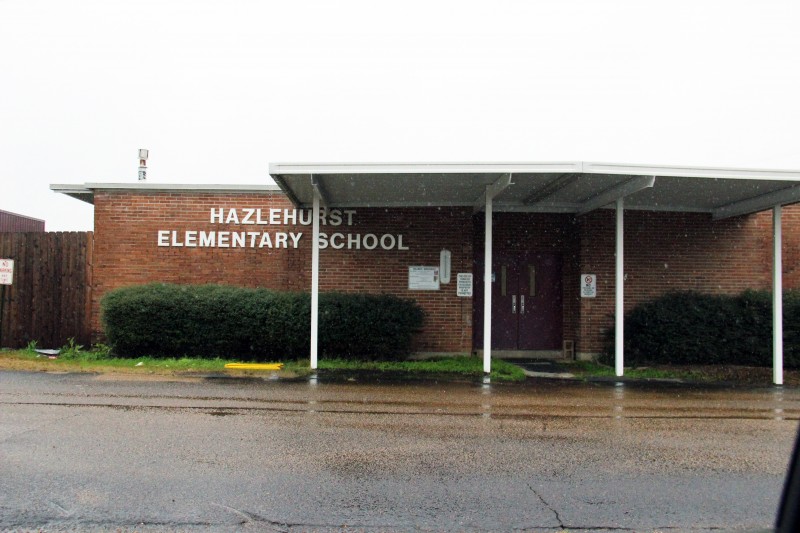In Mississippi, best teachers don’t go where they are needed most
Low-income, minority schools get by with subs, rookies, and incorrectly licensed staff

Hazlehurst Elementary is one of three schools that make up the Hazlehurst School District, which has previously relied on teachers from Teach For America to fill vacant teacher positions. Photo: Jackie Mader
MERIDIAN, Miss. — Every school year, Meridian mom Cassandra Rhone worries her children’s teachers won’t have enough knowledge and experience.
“I don’t want my kids to have a long line of subs,” said Rhone, who has three children in Meridian’s public schools –— one in second-grade, one in seventh and one in twelfth. “They need teachers who have the right education and know what they’re doing.”
Rhone, who is studying to be a teacher, knows the difference. “They get a sub or someone without a credential and they don’t learn the same,” said Rhone. “They don’t get the work and they don’t get the homework. My kids –— and other kids — end up suffering.”
Rhone’s observations are in line with a recent state report, which shows students in low-income, predominantly black schools like Meridian’s are more likely to have rookie or un-credentialed teachers –— an experience that, when repeated, has been shown by experts to spell academic disaster for students. And that’s something Mississippi, which consistently finds itself behind nearly all other states in academic achievement, can ill afford.
What the state report found
The report was part of a U.S. Department of Education study that examined the reasons poor and minority students fail to get equal access to the best and most qualified teachers –— the lack of which remains a persistent problem in the state. It includes plans to address the inequities by promoting teaching as a profession in high school clubs and vocational programs, while calling for better college teacher education programs to help prepare educators for low-income and high-minority schools.
Mississippi’s teacher shortages mirror those in urban districts In Mississippi, best teachers don’t go where they are needed most - The Hechinger Report:
